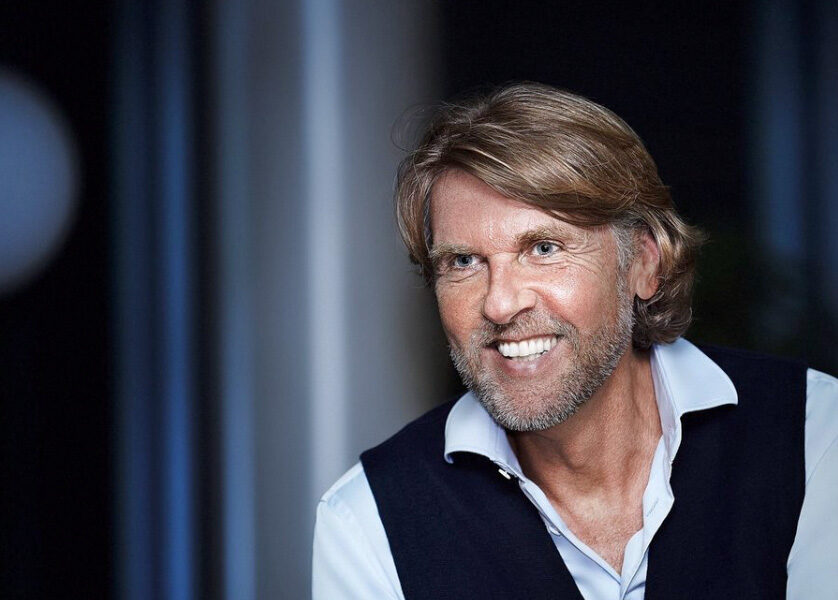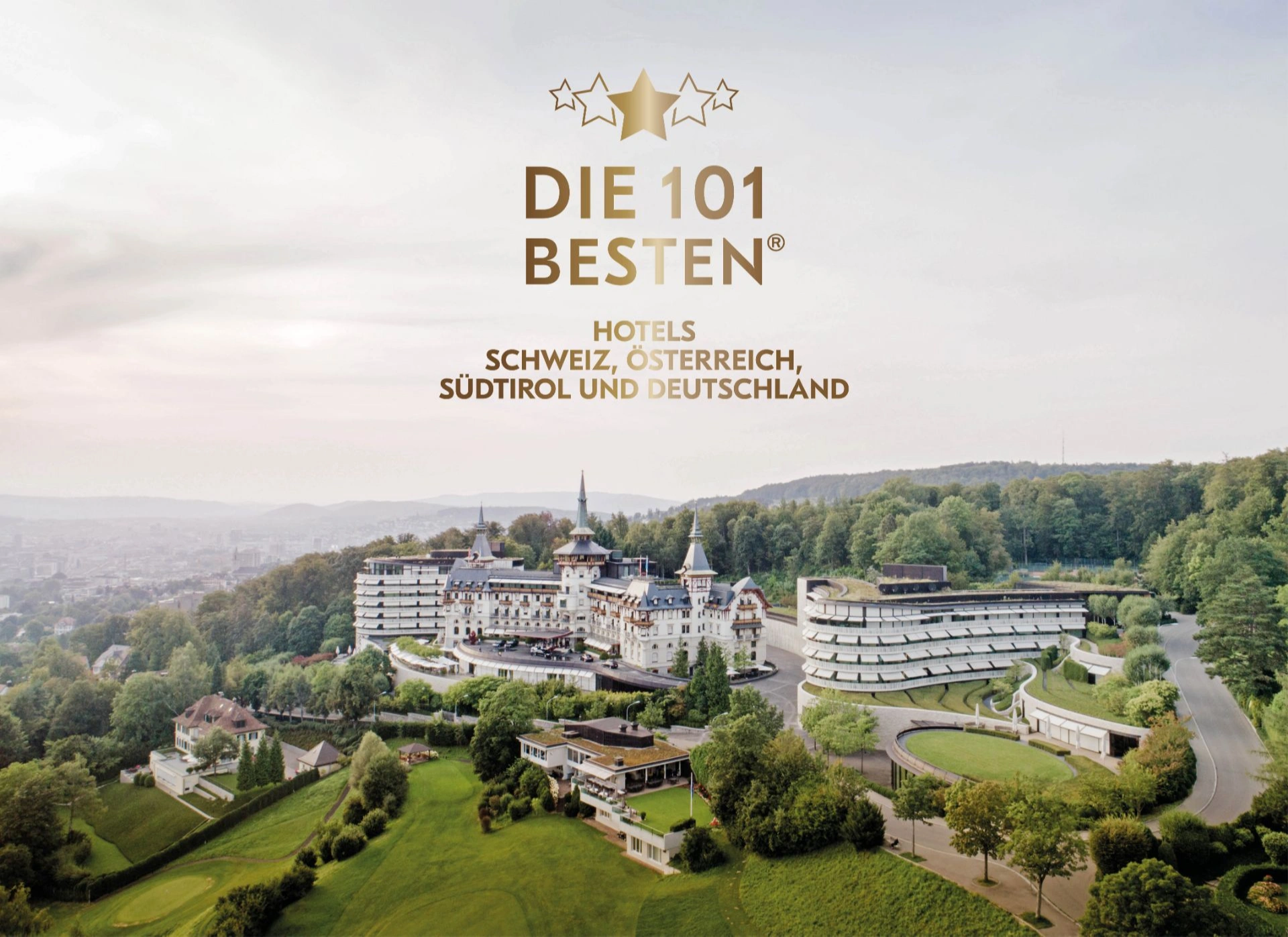
The most beautiful canyons in Arizona
11. April 2024
The most beautiful luxury hotels in the Alps and Germany
15. May 2024- The Dolder Grand towers high above Zurich. The winners of the “101 best hotels in Switzerland, Austria, South Tyrol and Germany” will be chosen here at an exclusive gala at the beginning of May 2024
INTERVIEW CARSTEN K. RATH
"Guests want to be surprised"
The first independent hotel ranking was established in Germany five years ago - now it is coming to the Alpine region for the first time. The winners of the "101 best hotels in Switzerland, Austria, South Tyrol and Germany" will be announced at an exclusive gala in May 2024 at The Dolder Grand in Zurich, in the presence of numerous representatives from business, politics and TV. The spiritus rector of the ranking is Carsten K. Rath. He spends 350 nights a year in hotels. Time for a chat. The interview was conducted by Tomas Niederberghaus, founder of the Hamburg agency TN Hotel Media Consulting.
Mr Rath, five years ago you launched the "101 best hotels in Germany" ranking together with your son David. What is the motivation behind it?
Carsten K. Rath: The world of the hotel industry is changing. New hotels are being added, old ones are getting on in years, are being renovated or are suffering from a renovation backlog. Our ranking provides guests with orientation. And it is also a reflection of a constantly evolving society: the hotel industry has experienced a democratisation. Take grand hotels, for example. They used to be the continuation of castles and palaces and were reserved for a certain clientele. Today, the snobs are no longer among themselves.
What makes your ranking special?
Rath: Our board of trustees includes the International University of Applied Sciences in Munich. They do everything they can to ensure that our ranking is as objective as possible. We combine guest feedback, the quality assessment of experts and international rankings and come very close to an objective assessment with this approach. This gives us a high degree of credibility.
Why the Alpine region now - after five successful years in Germany?
Rath: That's precisely the reason: our German readers, the discerning, luxury-loving guests who enjoy travelling, have repeatedly asked us to cast our net wider. The Alps are one of the most popular holiday regions for German-speaking guests, which is why they look beyond national borders when choosing their hotels. The same applies to employees in the hotel industry. In the past, the focus was very much on one's own nationality - today, many Germans work in Switzerland, Austrians in Germany and vice versa. We are therefore happy to fulfil the wishes of our readers, guests and employees to expand the 101 Best.
How exactly is the DACH area defined geographically?
Rath: The correct term would be DACH-ST, as it refers to the countries of Germany, Austria, Switzerland and the Italian region of South Tyrol. This area around the Alps is particularly interesting for our readers and guests because German is the predominant language there.
What is the main difference to "101 Best" Germany?
Rath: The differences are marginal. The only difference is that in Switzerland, as in Germany, the "101 Iconic Hotelier of the Year" is also awarded. This is our way of honouring outstanding personalities, which is also at the request of our readers and guests.
Don't such awards already exist?
Rath: Of course there is already a Hotelier of the Year, but no one focuses on the B2C sector as much as we do; we don't celebrate ourselves, but offer our readers guidance. Our guests are very interested in the personalities behind the hotels, who the 101 Icon Hotelier of the Year is. We therefore offer more background information as an additional service for interested guests - but also for the hotels to present themselves to the public.
Are there any other innovations?
Rath: We will also be honouring the "101 Discovery of the Year" hotel in Switzerland for the first time in 2025. This is a hotel that is not one of the "101 Best", that is even less well known - but in our opinion still deserves to be recognised.
How do the four countries differ, are there any real characteristics?
Rath: In my opinion, the only thing that really unites these four countries is the German language, and even that is interpreted very differently. When I immigrated to Switzerland in 2007, I initially thought that the people there would have the same character traits and a similar language to those in Germany. But I was wrong. The people in these countries have developed very differently over the course of their respective histories - and that's a good thing.
Why is that?
Rath: Because diversity is a wonderful thing. The German-speaking region comprises over 100 million people in the three countries and the South Tyrol region. Their traditions and customs, their culture and cuisine are just as diverse and varied as the regions themselves. From the quiet North Germans on Sylt to the creative South Tyroleans, everything is represented. Here I share the view of the people of Cologne, who say: "Every Jeck is different."
Do any of these four countries have a significantly higher standard in the hotel industry?
Rath: No, none of the countries outperforms the others in terms of standard. Nevertheless, each country has outstanding hotels in its own speciality. For example, cities such as Vienna, Salzburg or Zurich and many major German cities such as Hamburg and Düsseldorf are outstanding destinations for city and grand hotels. In the resort hotel industry, the Alpine countries are naturally more frequently represented due to their charming landscapes. Regions such as Baden-Württemberg, Bavaria and the coasts of Germany are catching up strongly. The idea of competition has a positive connotation, as it encourages benchmarking and mutual learning. I therefore have the impression that this increasing exchange benefits guests.
What role does training play today? Did Lausanne used to be the non plus ultra?
Rath: It is always a challenge to say which university or hotel management school is the best. Every country certainly has an outstanding institution. In Switzerland, this could be the "Lausanne Hotel Management School", while internationally, the "IU International" from Germany, which is represented in many cities, is one of the leading institutions. The Klessheim School in Austria is also regarded as a first-class training centre. I am of the opinion that we have an extremely high-quality education system in the hotel industry in all countries and that ultimately the talents and, in particular, the motivation of the individual are decisive, regardless of which school you attend.
Is there such a thing as a personnel maxim for the hotel industry?
Rath: It is important that the hotel industry offers a wide range of educational opportunities, from A-levels to a Master's degree from IU - and that is exactly what hoteliers are looking for in applicants.
What are the major international trends? What role do location or cuisine play today, for example?
Rath: Trends are an ambivalent matter, because they come and go relatively quickly. We tend to look at long-term developments. Of course, topics such as spa, cuisine and sports such as golf are megatrends. At the same time, we recognise that the focus of guests is increasingly shifting towards individuality, that size no longer automatically means quality and that a personal approach and the fulfilment of individual guest wishes are becoming increasingly important. When I look at outstanding hotels such as Schloss Elmau, for example, you can sense an atmosphere of free spirit that offers guests a completely new experience. Here, the rules are not set for the guest, but the rules serve the guest.
Can you give us an example?
Rath: In the best hotels, for example, breakfast is no longer served from 7.00 am to 10.30 am. Instead, the breakfast buffet is open from 7 a.m. to 10.30 a.m. - and guests can enjoy breakfast whenever and wherever they want outside of these times. The focus is on giving guests the freedom of choice to do what they want, when and where they want, within legal limits of course.
Is there such a thing as a perfect hotel and what makes it so?
Rath: Perfection is boring. But a good hotel offers its guests experiences and, above all, personal attention. In everyday life today, we experience fewer and fewer human encounters. People used to go to the newsagent in the morning to pick up the newspaper and have their first conversation. Today, we read online and work from home. "Human-to-human moments" in the hotel are therefore even more important. The more of them I experience, the more I remember a hotel.
You spend almost your entire life in a hotel. Tell us what really annoys you in a hotel!
Rath: The listless question "How was your journey?" I sometimes make a mockery of it with my answers. Then I say: "Quite ok. Except that I scratched the neighbour's mudguard when I left the underground car park this morning and ran over our cat". I always ask myself why you don't just give the guest a friendly welcome: "Welcome, nice to see you!"
What is the first thing you look for when you enter a hotel?
Rath: I am a sensual person and have a strong olfactory sense. So the first thing I pay attention to is how a hotel smells. Cheap room fragrances or pungent cleaning agents bother me.
What does service mean to you?
Rath: When employees embody the attitude: "I'm happy to look after you" and then do so with professional and personal excellence. I don't like having to subordinate myself as a guest to a standardised hotel process. And inattention annoys me. Or to put it positively: If someone realises that I don't want air conditioning and doesn't draw the curtains in the evening, then I feel welcome.
What is totally overrated in the hotel industry?
Rath: The pillow menu. You don't need three different pillow sizes per bed as standard. The water sommelier and the wooden boxes with 20 different pairs of reading glasses with different dioptres are also overrated.
WELT once dubbed you the "rock star of grand hotels". Did you feel honoured? And what could the newspaper have meant by that?
Rath: From my own experience as a former general manager, I know that rock stars can sometimes tear your room apart in a frenzy over some active ingredients. That's not the case with me (laughs). But maybe I'm just not that conformist. And that's also my view of hotels.
Has the concept of luxury changed in the luxury hotel industry?
Rath: Luxury has undergone an incredible transformation in the hotel industry. The terms luxury and sustainability used to be mutually exclusive, but today they are mutually dependent. In the past, luxury was equated with splendour; today, luxury for the guest means having time and space. Luxury in the hotel industry has become more casual and relaxed in terms of appearance. White trainers with suits are no longer a no-go, but just as much a matter of course as directors without ties. This is more reminiscent of street fashion. Cloche service with white gloves is passé.
So can the luxury hotel industry learn more from fashion than fashion can learn from the luxury hotel industry?
Rath: Definitely. I was just in London on Bond Street and stood in amazement in front of shops like Alexander McQueen and Louis Vuitton. They now redecorate their shop windows every week and even entire streets and blocks of flats. Luxury hotels should also create a new highlight every week. Guests want to be surprised.
Who would you like to sit with at a hotel bar late at night?
Rath: With my three best friends, for whom I unfortunately have far too little time.
Thank you very much for the interview!
Photocredit:


